The best sports-driven tech
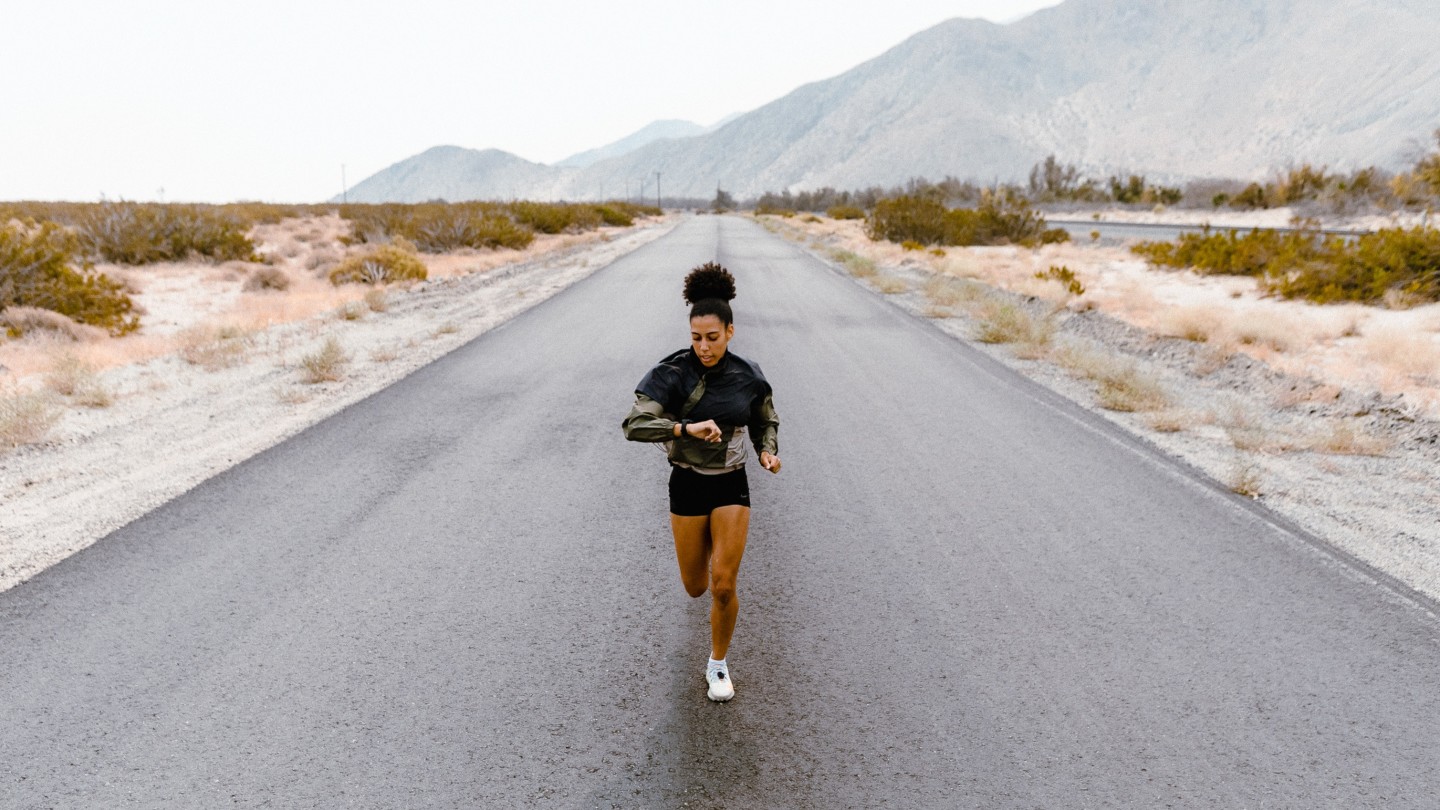
Roula Khalaf, Editor of the FT, selects her favourite stories in this weekly newsletter.
With the right information, you can optimise your training and work positively towards sporting goals – as well as boosting health and wellbeing. Here’s our selection of the best data-informed sports tech…
Incus Nova Swim
for swimming, running and cycling
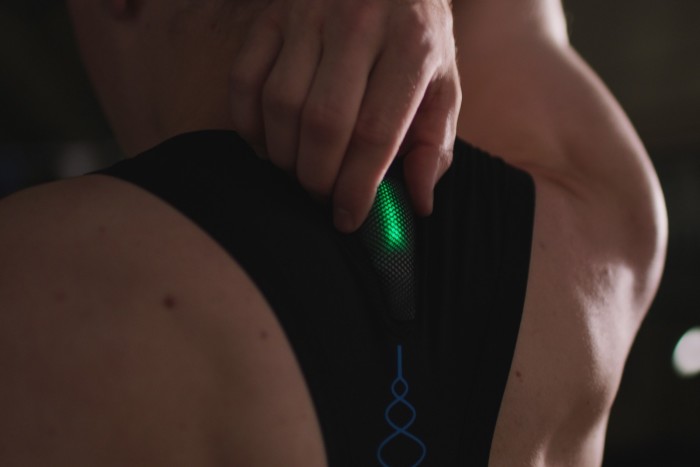
This sleek gadget slips discreetly into a pouch worn on your back, from where it is uniquely poised to build a whole-body picture of your swimming technique and record your training sessions (with running and cycling analysis available soon). As well as the more usual metrics such as distance, pace, split times and stroke rate, unique insights include body angles – both roll and pitch – and the velocity gain from each stroke, with left-right asymmetry, allowing you to precisely identify where in the stroke cycle you’re slowing yourself down, thereby improving efficiency. The running version, which launched this month, includes metrics for power as well as left/right foot analytics identifying the level of impact (the amount of deceleration that your body experiences when your foot first hits the ground) upon landing. £199.99, incusperformance.com
Favero Assioma Duo Power Meter Pedals
for cycling
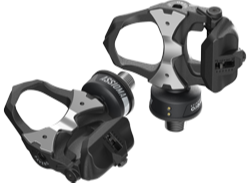
These maintenance-free power meter pedals offer a precise measure of your cycling performance. By capturing the pressure applied on the pedals hundreds of times per second, they record pedal smoothness, left-right balance, cadence, and a host more stats. The waterproof pedals seamlessly pair (via Bluetooth or ANT+) to your handlebar-mounted cycling computer, and firmware updates via the smartphone app (including a recent auto-calibration one) ensure constant accuracy. With integrated rechargeable batteries, they are easily charged with a USB cable – you’ll get at least 50 hours – and you can switch them between bikes within seconds. €569.67, cycling.favero.com
Garmin Edge 1030 Plus
for cycling
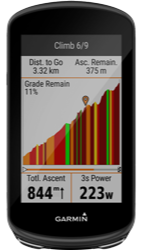
When clocking up miles on trails or tarmac, a handlebar-mounted bicycle computer is essential. Garmin’s recently updated flagship model is a great catch-all option – it has a great battery life (up to 24 hours), mapped route guidance and phone notifications, and numerous customisable live data screen options. The generously sized 3.5in colour touchscreen display provides automatic elevation profiles on climbs, along with detailed live power metrics (from your paired power meter pedals), VO2 max estimates (your maximum rate of oxygen consumption in the body), training effect analysis and a host of other physiological measurements. £599.99, buy.garmin.com
Supersapiens
for performance and fitness

This coin-sized biosensor is worn on the back of the upper arm (the filament is inserted just under the skin easily and painlessly), then pairs via Bluetooth with the Supersapiens phone app to instantly display a real-time feed of your blood glucose energy levels. These insights will help those looking for an edge to improve athletic performance – you’ll learn how your body responds to different types of food, whether you’re optimally fuelled at the start line and during a race, plus how to improve recovery. It has an integrated memory for eight hours of data, so you can sync with your phone when convenient, and the sensors can be worn for up to 14 days continuously, after which time you can replace it with a new one. From €75, supersapiens.com
Oura Ring
for performance and fitness
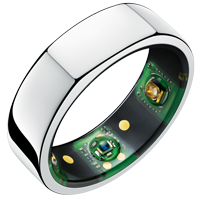
To both wearer and onlooker, this appears to be little more than a regular ring. However, integrated on the inner surface of this lightweight titanium band is a series of sensors: one for skin temperature, one to detect movement, and a set of sophisticated lights and sensors that measure heart rate, HRV, and respiration. When synced with the Oura smartphone app, the data collected provides a holistic picture of one’s health – building trends over time that can also help spot when something might be amiss. The app has three categories: sleep, activity, and a readiness score, which pulls in all the data to tell you how ready you are (or not) for a challenging day. It has a battery life of up to one week, and you’ll receive a sizing kit in the post beforehand to ensure you get the right fit for your finger. It’s available in two styles and various finishes, and is a unique and discreet take on the activity tracker, ideal for those who don’t want to wear a watch. From $299, ouraring.com
Whoop
for performance and fitness
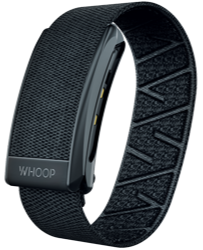
The device itself is simple: a lightweight and comfortable strap with a built-in sensor that tracks your heart rate 24/7 – there’s no screen, no step counter, no GPS. The subscription based Whoop (6 months minimum term and the strap comes free), comes into its own via the app, where the data captured is categorised into sleep, recovery and strain. It’s particularly helpful for sleep and recovery, with the “coach” function giving a recommended bedtime for optimal performance based on your historical data – and it will suggest a recommended exertion level too. This is an insightful piece of kit that works well in tandem with other specific training devices, such as a running watch or cycling computer. From £24 per month, whoop.com
Myzone MZ-Switch
for health and fitness
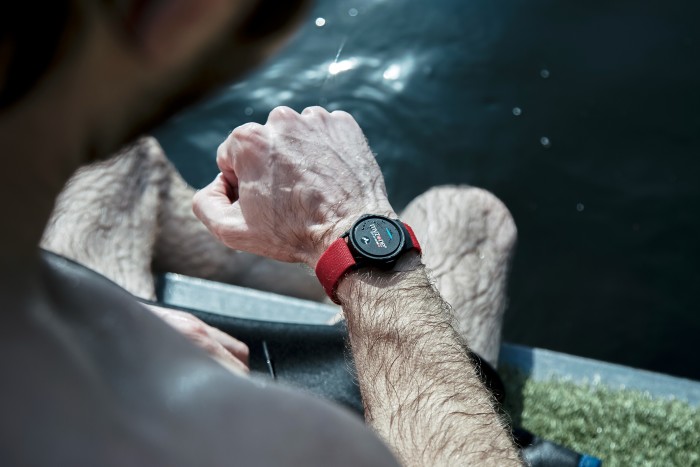
This is world’s first heart rate monitor to incorporate both PPG and ECG heart rate tracking; at the touch of a button, the device will instantly switch from one to the other. It also easily reattaches from the wrist, arm or chest mounts (included) as desired. It connects with third-party apps and running watches via ANT+ or Bluetooth, or can be used with the Myzone app, which tailors the information to suit individual needs, whether an athlete or someone starting out with simple exercise. £139.99, buy.myzone.org
Polar Verity Sense
for fitness, running and swimming
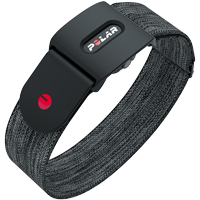
Polar developed the world’s first wireless heart rate monitor in 1977, and it continues to be a leader in the field. This arm-mounted optical heart rate sensor is its latest release and offers a viable alternative to chest-mounted versions that (although offering an undisputed benchmark for accuracy) are more restrictive. It has built-in memory for up to 600 hours of data, which means it doesn’t need to be paired to a device to record a workout (you can sync it later), but it can, of course, offer live heart rate data via ANT+ or Bluetooth. It can also be mounted on goggles whilst swimming to read a pulse from your temple. £79.50, polar.com
Carv
for skiers
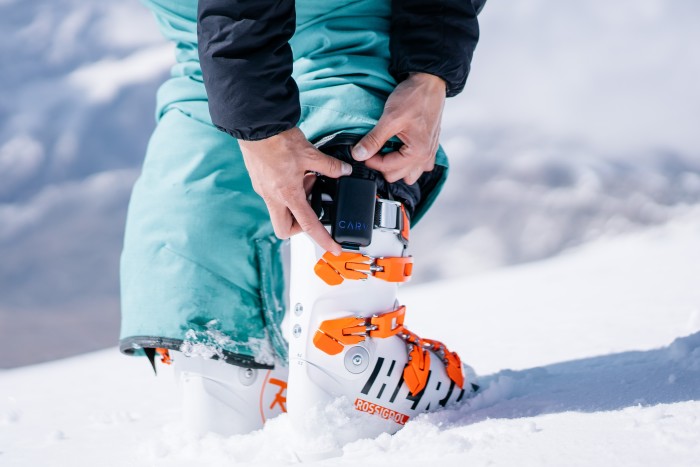
Find it hard to pinpoint where your skiing technique needs improvement? These ski-specific smart insoles are loaded with 72 pressure sensors, as well as a motion sensor, that help do just that. Metrics are delivered via the app in four categories: it’ll tell you if you’re leaning too far forward or back, how well you’re edging, if the skis are turning parallel and where you’re applying pressure. The battery pack clips onto the top of the outside of your boot, and the real-time coaching feedback helps incremental improvement with every turn. £399, getcarv.com
Garmin Enduro
for runners
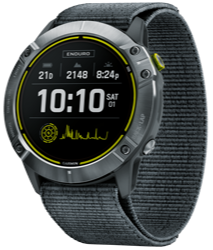
Garmin’s latest running watch release features an eye-catching scratch-resistant titanium bezel; highly adjustable velcro nylon strap; and a huge battery life of 70 hours in full GPS mode (extending to 80 hours in sunny conditions thanks to a solar-charging lens). This makes it a great proposition for both ultra runners and everyday athletes. Although it doesn’t offer an integrated power meter (pair with a sensor for this), it’s stacked with advanced running data including VO2 max, real-time elevation charts of upcoming climbs, built-in recovery advisor, cadence and navigation, and, with a built-in Pulse Ox blood oxygen saturation monitor and heart rate monitor, it doubles up brilliantly for more day-to-day activity and health tracking. £699.99, buy.garmin.com
Mymo
for runners
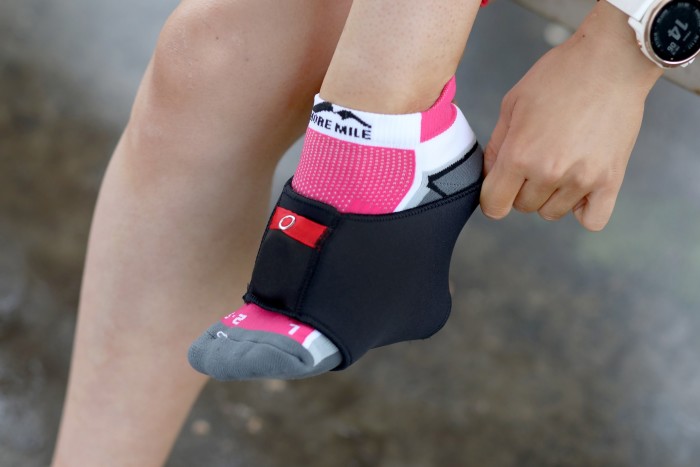
If you’ve ever had difficulty finding a compatible pair of running shoes, until now you might have gone to a specialist running shop where an “expert” would watch you run on a treadmill and make suggestions based on what they saw. Mymo does away with this and brings the test to you, using smart technology and an algorithm to analyse your gait. Just wear the sensor, run down the street and it will instantly determine whether, for example, you heel strike or overpronate, and suggest appropriate trainers. It’s simple, and Mymo claims 94.6 per cent accuracy of successful shoe recommendation – so it’s effective too. £59.99, mymo.co.uk
Stryd
for runners

Attach this neat 8g running power meter onto your shoe, pair with a compatible running watch (nearly all newly released models), and open up a whole new approach to your running training. It is particularly useful when training on varying gradients, as the universal measure of the watt recognises if you’re having to work harder to run uphill. £199, stryd.com
Bio-Synergy DNA & Epigenetics Testing Kit
for health and fitness

The results provided by this home DNA and epigenetic testing kit offer health insights such as caffeine sensitivity, metabolic rate and biological age, and can also flag up whether you’re genetically prone to conditions such as type-2 diabetes. The process is very simple: a saliva collection kit is posted to you; you return the kit and a couple of weeks later your in-depth results will be available to view on the app, arranged into categories including gut health, heart health, ageing and sleep. Combined, this data provides an informed viewpoint to consider for training and performance, as well as health and nutrition. £219, bio-synergy.uk
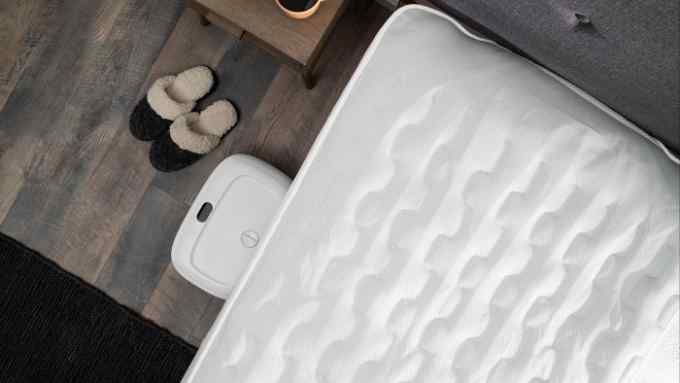
Comments